Wine in cans? Boxless breakfast cereals? Milk cartons made of chalk? Corn-based plastic? We look at the latest innovations - and what's on the drawing board. By Adam Leyland, Alex Black and Joanne Grew
It's been dubbed the 'slop bucket' tax. But this week's news that local councils are to fine households up to £500 if they don't recycle their waste correctly is perhaps the most dramatic in an increasingly long line of penalties being prepared to address the chronic environmental issue of household waste.
Six million tonnes of household packaging waste are dumped every year 70% from grocery according to government agency Wrap. And with consumers and governments demanding grocery goods come in greener, leaner packaging or none at all what progress has the industry made? How radical do we need to be?
Over the past four years, retailers and manufacturers have made ever more serious moves to lighten up, slim down and cut loose with the packaging.
The latest initiative, announced in June, was a recycling labelling initiative devised by Wrap and the BRC. Of the major multiples, only Morrisons has not yet signed up, and the list of manufacturers joining is growing daily. This follows Wrap's Courtauld Commitment, in 2005, a voluntary agreement that last year achieved its first aim of stalling packaging growth.
Wrap is now concentrating on Courtauld's next objective: delivering absolute reductions in packaging waste by 2010. And there are real signs of progress here too. In June, Sainsbury's announced it had reduced packaging by 13.7%, beating its previous target of 5% by 2010 against a 2004 baseline. It has now set a new aim of reducing packaging by 33% over the next six years, and is looking at everything from the introduction of boxless breakfast cereals to reducing the thickness of the film on bagged salads, says print and packaging manager Stuart Lendrum.
Tesco has also redoubled its efforts. Last month, it announced all waste from its UK business would be diverted away from landfill. And it plans to reduce the amount of packaging across branded and own-label products by a quarter next year.
Meanwhile, Asda says it hit its target of reducing packaging by a quarter last year and now aims to cut it a further 5% from its 2005 baseline. Morrisons and The Co-operative Group have set a target of using 15% less own-label packaging in 2010 than 2005, while Marks & Spencer aims to reduce non-glass product packaging by 25% and use only recyclable or compostable packaging by 2012.
And while Waitrose's targets appear rather less onerous it aims to cut packaging by 2013 on a like-for-like basis compared with 2005 it's also busy. Plans include sealing strawberry punnets using a film layer rather than a lid, reducing packaging weight by 22%, and printing directly on to egg boxes by October, doing away with stick-on labels and eliminating a further 35 tonnes of packaging per year.
And what of the manufacturers? Asda's chief merchandising officer, Darren Blackhurst, told The Grocer last week that he felt branded manufacturers had been slow off the mark. "Our branded supply base needs to start thinking about this more seriously. We've got our own house in order Asda is on target to reduce its own-label packaging by 30% on 2007 [levels] by the end of 2009. Now there needs to be a call to arms with branded suppliers."
But certain manufacturers are making progress. On the detergents side, Unilever's development of concentrated liquids has eliminated 1,300 tonnes of plastic and 1,700 tonnes of cardboard for Persil Small & Mighty alone in the past two years. And while giant boxes of powder also remain available in many retailers, Asda banned non-concentrated detergents altogether from last year.
US detergent manufacturer Method is going further still. The eco cleaning brand was the first in its sector to introduce 100% recycled and recyclable bottles, under its 'past, present and future' motto.
"I can look at one of our products and know it used to be a bottle, and it'll become a bottle again once it's empty," says co-founder Adam Lowry.
The company has also just developed the world's first polypropylene cleaning wipes. Standard cleaning wipes are made in layers, which makes them almost impossible to recycle, explains Lowry, but the Method wipes and the dispenser they come in are completely recyclable.
So-called lightweighting of glass and plastic bottles is also making a difference, with CO2 emissions halving between 1979-2005. And even more dramatic results are possible with new packaging formats.
"Systems such as Dairy Crest's 'Jugit' pouches for milk single-handedly remove more than 70% by weight of HDPE plastic packaging from the waste stream," says Paul Butler, director at Smart Packaging.
Coca-Cola, the world's largest soft drinks manufacturer, has been systematically reducing the weight of its bottles while increasing the amount of recycled aluminium in its cans. In March, when it became the first fizzy drink manufacturer to achieve Carbon Trust certification, it felt sufficiently confident of its efforts to use the opportunity to announce a commitment to ensure its plastic PET bottles contain at least 25% recycled PET (RPET) by the end of next year.
Consumer attitudes are shifting too. A study by Wrap and Sainsbury's published this month found that consumers no longer cared if products came in pristine clear glass and were mostly happy to accept the mixed colour of recycled glass.
Wrap is currently in the process of commissioning a large-scale trial project that will produce containers made with 90% recycled glass from around 30,000 tonnes of mixed colour used glass that would have otherwise have been sent to landfill or, at best, been used as cheap aggregate. This, says Wrap market development director Marcus Gover, will provide the starting point for major commercial usage of recycled glass in grocery products.
Another new development in the UK is wine in cans, courtesy of packaging specialist Rexam. In May, Guy Anderson Wines introduced a French white wine called Cancan in a 250ml can. Canned wine has been on the market for three years in Austria and Germany and is growing. Rexam produced five million cans for wine use in 2006, but is targeting 40 million this year, according to Rexam's category development manager Irene Martinez.
And what of the future? Lowry at Method hopes the next couple of years will bring an improvement in biodegradable corn-starch-based PLA films. But the widespread use of the latest generation of bio packaging, based on agri-waste organic matter, is some way off yet, says Alcan Packaging's director of product sustainability Gerald Rebitzer.
"Current bio plastics work for high-oxygen products, such as fresh food, but they are not yet suitable for things like coffee or medicine that need to be protected from the atmosphere," he says.
Symphony Environmental, a manufacturer of biodegradable plastic bags, has just developed the first biodegradable crisp packets, supplying Mexico-based Grupo Bimbo since July. Symphony is also working to make PET biodegrade.
Meanwhile, at the beginning of this month, Wrap announced a series of new industry partnerships to look at packaging. These included a collaboration between Giraffe Innovation, The Co-operative Group and Vion UK to reduce waste from vacuum-packed meat packaging, a Premier Foods study into bakery packaging and an Adare project for Somerfield/The Co-op, which will look at new flexible shrink wrap for chicken that eliminates the need for a tray and self-adhesive labels, while also extending shelf-life by up to two days.
And design and branding strategist Maria Ana Botelho Neves believes the development of 3D printers, which make solid objects in one go, will make designs easier to translate into 3D.
Wrap's head of retail Andy Dawe believes one of the most significant innovations is even more simple: reusable packaging such as the new self-dispensing detergent scheme that Asda is set to trial in the near future (see box). "Reusable container schemes offer tremendous opportunities to reduce packaging and cost," he says.
Could consumers get used to the idea of taking empty containers to supermarkets? Well, they have had some introduction, with Wrap figures released in July showing the number of single-use carrier bags issued has almost halved in the past three years, from 870 million to 450 million.
While scientists and manufacturers work on improving the materials and designs of packaging, Alcan Packaging's Rebitzer sounds a note of caution. "In the past two years, people have realised there is no silver bullet," he says.
He believes the recycling infrastructure needs to improve dramatically. "It is impossible to take a material and say, 'this is environmentally friendly' because packaging that might work in one local council or even in one country might not work in another."
Rebitzer cites the example of Nespresso's aluminium coffee capsules, which claim a 60% recycling rate but only in Switzerland, which has dedicated collection areas.
And the other challenge, of course, is recycling adoption rates. Perhaps a penalty fine will do the trick.
Sign in to comment on this article
Not logged in before? Register for FREE guest access today.
You will be able to:
- Read more stories
- Receive daily newsletters
- Comment on stories
Advert








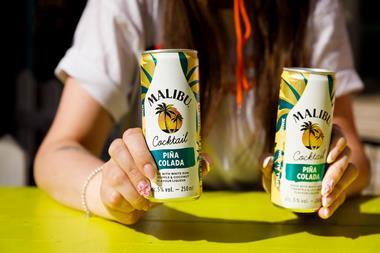
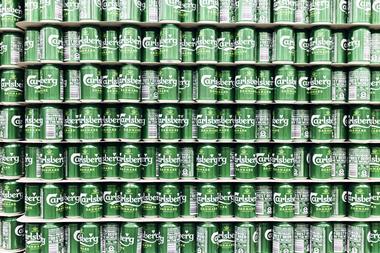
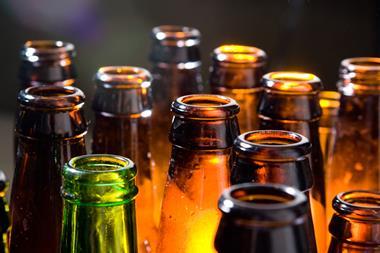
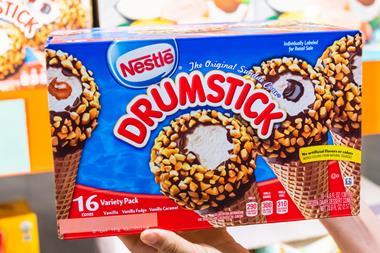
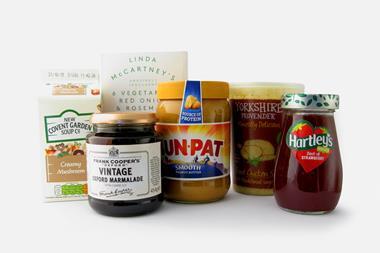
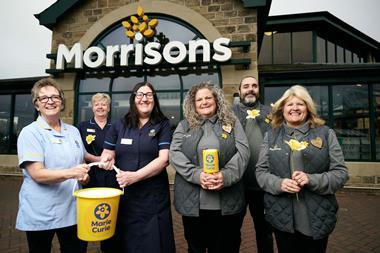
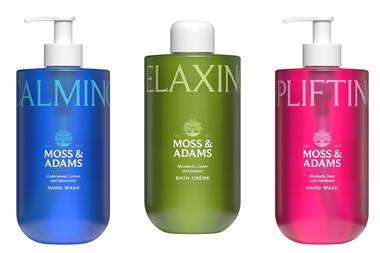
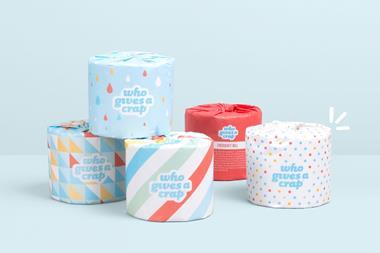

3 Readers' comments